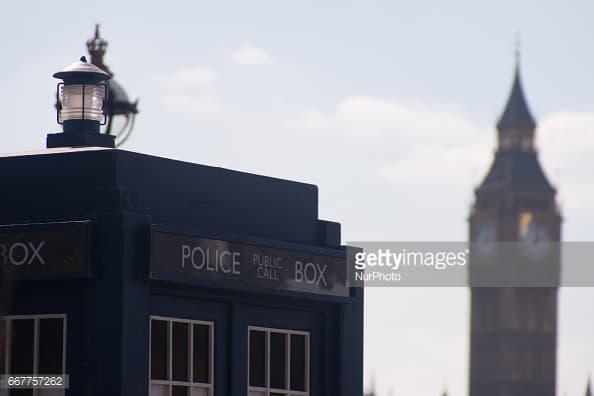This Christmas, the Doctor will regenerate like never before.
Yes, you saw that correctly. After 36 series, numerous specials, and a TV movie, Jodie Whittaker will be the first woman to play the lead role in the long-running British sci-fi series, and responses have been mixed to say the least. Some have said that it is about time for a change, while others feel that the change is either a token move or an attempt for the BBC to be politically correct. Still more are furious and even claim that changing the Doctor’s gender is an affront to the essence of the lead character.
But here’s the thing: we’ve seen this transition coming. In Series 8, classic Doctor Who villain, the Master appeared as a woman, going by “Missy,” short for Mistress. And this transition worked, giving new life to a character who, previously, never quite had staying power. The Master was hinted at during series 3 but he was one-dimensional. He just wanted power and control. By contrast, we encountered Missy directly in Series 8 without knowing who she was. She wanted chaos and fun rather than control.
It was then that I started wondering if the next Doctor could be a woman.
Incoming head writer Chris Chibnall stated that he “always wanted the Thirteenth Doctor to be a woman.” 1 But he also did not want a gimmick. Choosing a woman as the Doctor simply for the sake of having a woman reeks of tokenism and ultimately detracts from the character of the Doctor. So it seems instead that his vision for the Doctor is rooted in his desire to explore the depth of the Doctor’s character.
Given his enthusiasm, it makes sense that Chibnall is taking the series in a new direction. Moreover, the choice of Whittaker shouldn’t be a surprise: he’s worked with her before on the BBC series Broadchurch and now is calling her his first choice for the 13th doctor.
Personally, I am pleased to see Whittaker cast as the Doctor. While I say this never having seen her work before, she is a natural Doctor: when I saw her take off her hood and smile at the camera in the reveal trailer, she felt like the Doctor to me. Key in hand, she happily recognizes the TARDIS as her own. That simple joy felt real. But more importantly, she is making a statement to a new generation of young women.
***
Throughout the course of Doctor Who, women have primarily been limited to the role of a companion. Some of them have been tremendous forces in their own right. That said, only the characters of River Song and Missy have stood out in the new series as women independent of the TARDIS. River Song is a fellow time traveler who we later learn is the Doctor’s wife. The fact that we encounter her in reverse order makes her simultaneously one of the most fascinating and tragic characters in the series. We know how her story will end from the very beginning. As the Doctor gets to know her better, she knows him less.
That said, neither of these women has ever been the Doctor. They have always taken a backseat to the men in the titular role.
Now, Whittaker is allowing young girls to look up to her as a role model. This seems fitting for Doctor Who – Science Fiction has long been a medium for social commentary. It makes sense that Doctor Who also tells young women that they too are important enough to be the hero, not just a companion.
When asked about her upcoming role as the Doctor, Whittaker responded that “Doctor Who represents everything that’s exciting about change. The fans have lived through so many changes, and this is only a new, different one, not a fearful one.” 2. And she’s exactly right. The Doctor has changed in numerous ways through the years. Matt Smith and Peter Davison were thought too young to play the Doctor, but they proved their worth. Even the very concept of regeneration comes from the need to replace William Hartnell, the first actor to portray the Doctor, due to ill health.
At the end of the day, the Doctor is a time-and-space-hopping alien with two tremendous hearts. The Doctor, no matter the body, always wants to make a positive impact on the universe. The Doctor carries no weapons and yet is a hero. Armed with a sonic screwdriver, and a TARDIS, the Doctor tries to save the day without violence, but instead with compassion and intelligence.
So long as Whittaker remains faithful to that core essence of the character, she will be a fantastic Doctor. For me, it’s not the gender of the Doctor who matters but rather the lessons the Doctor teaches us as viewers.
-//-
The cover picture , “Doctor Who Returns,” is featured courtesy of Getty Images.


